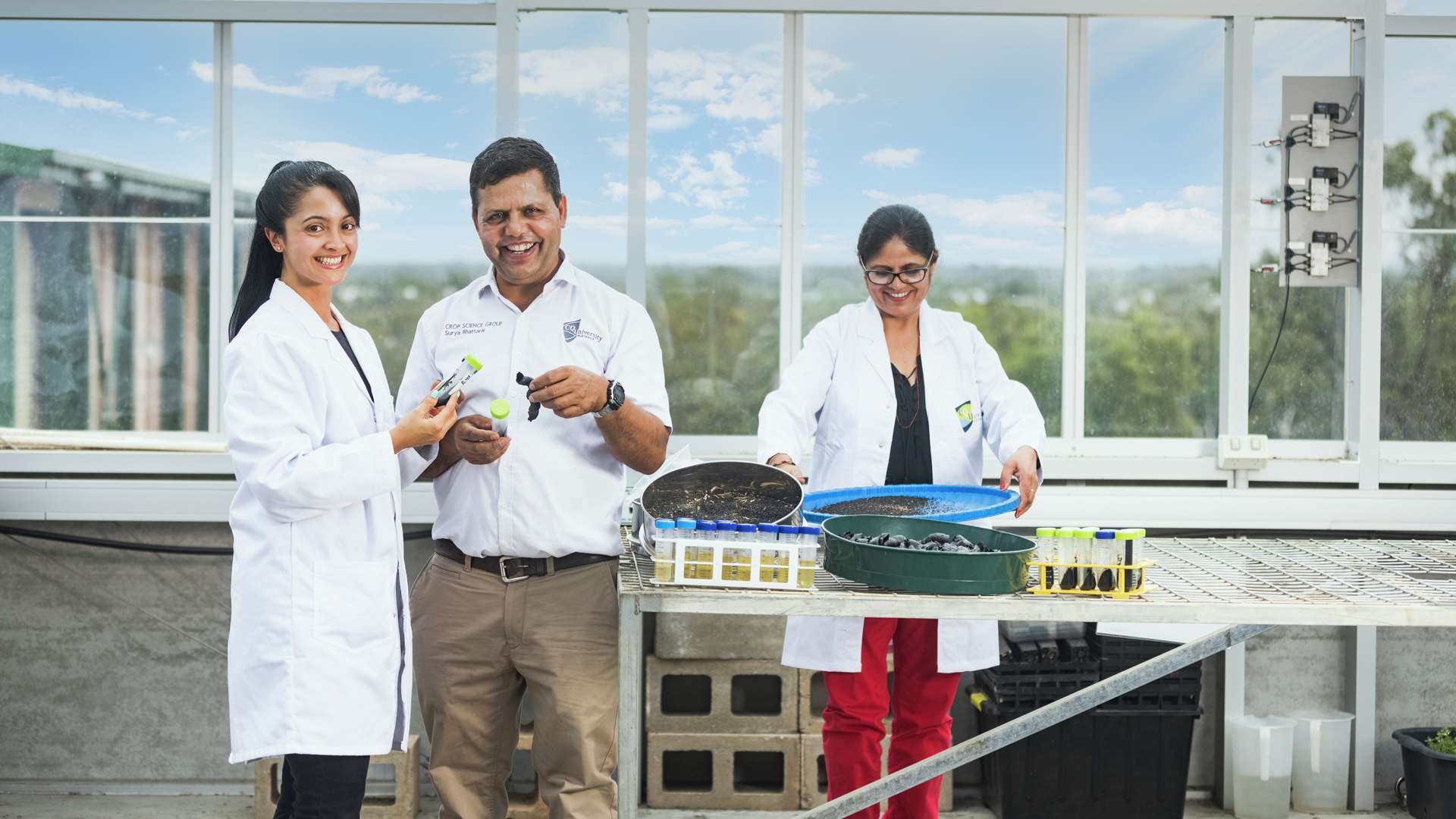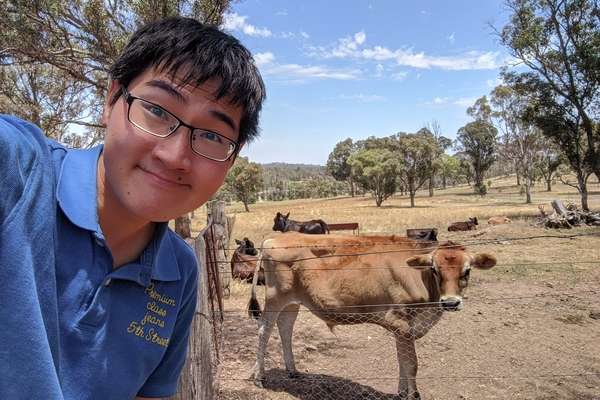Bachelor of Agriculture

Overview
The Bachelor of Agriculture equips you with the agriculture knowledge, critical thinking and problem-solving skills required to play important professional roles in improving the productivity and sustainability of modern agriculture.
The course has an applied focus that will provide you with industry-relevant training on a firm scientific basis. A suite of eight core units will provide the strong foundation you will use to acquire an understanding of increasingly complex concepts in the context of industry-relevant problems. A series of eight discipline units starting in year 2 will help you build your systemic thinking and you will learn about emerging agricultural innovations and current technological advances, culminating in a capstone unit where you reinforce and apply the principles and thinking skills acquired throughout the course to address challenging case studies. Through the professional placement or research project, you will apply the theoretical and practical knowledge gained in your degree to an authentic professional work or research environment.
Eight extension units offer great choices to creatively combine your agriculture core knowledge with other disciplines to give you an additional edge as a professional. You will profit from the University's research excellence in agriculture and its focus on regional and industry engagement through the opportunities to learn from leading industry experts, interact with top researchers, hear from experienced practitioners and engage in activities such as summer research projects, conferences attendance, or international activities. The Bachelor of Agriculture course prepares you for the rigours of the real world and ensures you have the skills to make a difference in the context of the emerging opportunities that a highly technical agricultural industry provides.
Study Experience
- Authentic Learning Experiences
- Real-world Learning Facilities
- Local Networks
- Strong Research Connections
- Work-integrated learning
 “
“I really enjoy the innovative course structure, and the theoretical and practical components. Specifically, the engaging field trips and having expertise from industry or other disciplines guest lecture to share different perspectives.
Chang-Hung Peng
Bachelor of Agriculture | Taiwan
 “
“The field trips are beneficial because researchers can observe and think at the scene of behaviour and have the flexibility that other research methods can't. CQU helps students to be enthusiastic and realise their full potential.
Xinhan Yang
Bachelor of Agriculture | China
Career Opportunities
Completion of the Bachelor of Agriculture will prepare you to pursue employment opportunities in areas such as:
- agribusiness support sectors such as banking, consultancy, marketing, trading and logistics
- agritech
- agronomy
- cropping
- government policy development
- horticulture
- industry analysis
- landcare coordination / management
- livestock
- production enterprise
Employment opportunities exist within public and private sectors for example in management, consulting and research in cropping, agribusiness, horticulture, landcare, sustainability and livestock management.
Structure & Availability
The course structure and available locations can change depending on when you want to study. You can choose the intake that best suits you in the drop-down menu below.
Available Locations
Your Course
You must complete 24 units (144 credits):
- 1The core structure (8 units)
- 2One eight-unit major
- 3One eight-unit minor
Unit Details
The units you'll study are listed below. Click on a unit to learn more.
Agronomy Major
Some of the minors and majors within this course are incompatible with each other. For example, you cannot study a major and a minor in the same field (e.g. you cannot complete the Agronomy major and the Agronomy minor together). Use the course planner, available lower on this page, to help plan which major and minor you'll study.
Agronomy Minor
Some of the minors and majors within this course are incompatible with each other. For example, you cannot study a major and a minor in the same field (e.g. you cannot complete the Agronomy major and the Agronomy minor together). Use the course planner, available lower on this page, to help plan which major and minor you'll study.
Additional Information
Professional Placement or Project - BIOL12050
This unit provides students with an opportunity to apply the theoretical knowledge and practical skills attained in their degree course to the professional work environment. Students will undertake either a) an industry placement, or b) a short research project for 120 hours. They will report on their experience in an appropriate format, identifying the nature of the work and activities undertaken. They will also reflect on how the knowledge gained and the skills developed during placement relate to their course of study and their future career.
If you have already completed a study relevant to the course you have enrolled in, you may be eligible for credit transfer.
Requirements
To Be Eligible
For your application to be considered, you must meet the following entry requirements.
During Your Study
While not needed to apply, you'll need to meet the following requirements throughout your studies.
Fees & Scholarships
Course Fees
This is an approximate cost of enrolling in this course, shown in Australian dollars (A$), for one academic year and is based on a full-time study load (8 units over 2 terms).
Your actual fees may vary, depending on the units that you select to study and your study load. Fees are reviewed each year and are subject to change.
A scholarship can help with the costs involved with living on campus, laptops and technology, childcare, study and living expenses, travel, and more.
You may be eligible for up to 25% international scholarship funded by the University.
We also offer other scholarships to support international students and encourage you to apply for the one that's right for you.
In addition to your international course tuition fees, you must have sufficient funds to cover other study and living expenses.
This will include costs such as textbooks, accommodation, visa applications, Overseas Student Health Cover (OSHC), general living, etc.
How to Apply
Our easy to use online application system for international students will guide you through the process of applying for a course at CQUniversity Australia.
